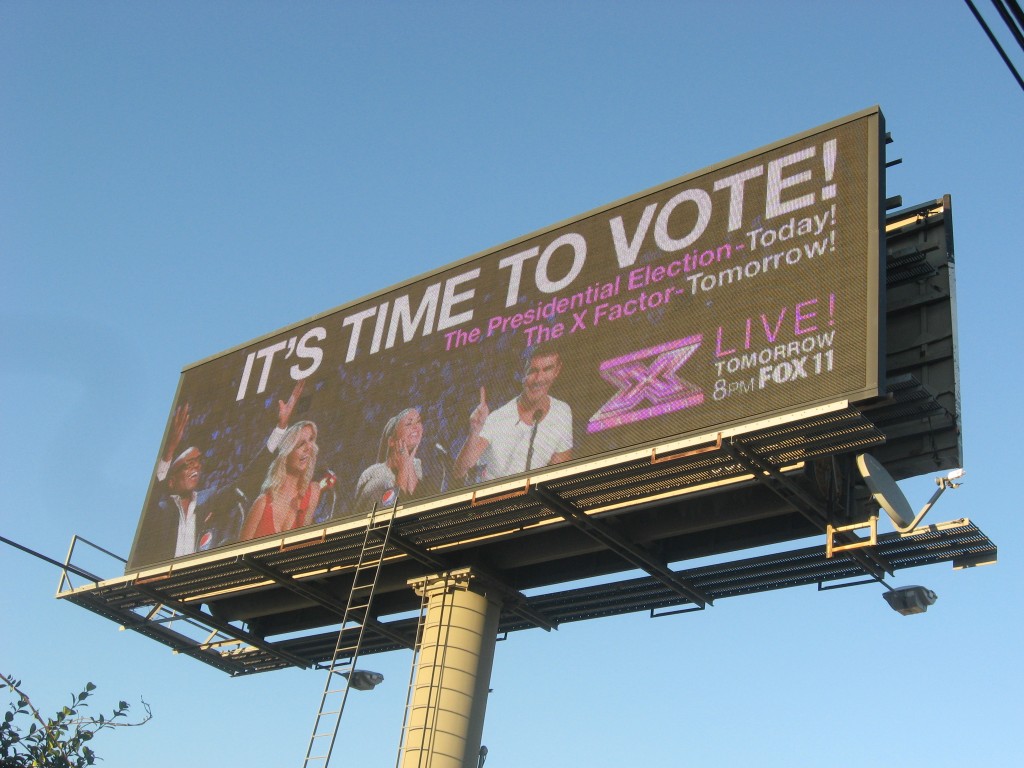by Sam Close
What a way to make us feel proud of fulfilling our civic duty, right? I saw this billboard on my way home from voting on Election Day 2012 and had to burst out laughing at Fox’s shamelessness. “If I ever need to explain neoliberalism to students,” I thought, “I can just show them this picture.” There could be no better illustration of the growing privatization of our public sphere than suggesting that voting to elect the President of the United States was just like voting for the next reality TV-produced pop star. The show wasn’t even in its finals!
But walking back out to the sign with my camera (some opportunities are too good to miss), my first reaction felt overly cynical. Viewed differently, here was popular culture giving a nod to civic culture by saying, “Remember, large audience of 18-24 year olds, go vote.” It’s only if we see popular culture as inherently degrading, which I don’t, that mentioning the X-Factor and the election on the same billboard is inherently damaging to civic life. There is no separation of cable and state.
I had a very similar conversation with students in the Center for Talented Youth’s Popular Culture course while looking at HBO’s memorable “Vampires were People Too” ad campaign. The posters make a clear analogy between the show’s vampires and contemporary queer people’s struggles for civil rights.
As a lesbian whose home state, North Carolina, recently amended its state constitution to prohibit me from getting married there, a not inconsequential part of me and my students squirms at this campaign. Some things are Serious Business, and using their power for an ironic ad campaign cheapens them.
Arguably. Maybe. I’m not actually sure. If there are political resonances to actress Ginnifer Goodwin’s now deleted tweet that a female-female couple could never happen on a broadcast, family show like Fox’s Once Upon a Time (and there are), then surely there are popular resonances to major political events and debates.
The reason that sign on Venice Boulevard matters is because things are changing. Our public and private spheres are merging and colliding, and no one is sure what shape they will eventually take. Academic debates about neoliberalism are fueled by anxiety about competition and replacement: if everyone’s watching The X-Factor, who’s watching CSPAN? At the same time, it would have been unthinkable in a previous era to even utter the phrase, “corporate social responsibility.” Large institutions will no doubt have a great influence on how things turn out. But maybe there’s hope in, of all places, The X-Factor. As the sign suggests, the show was one of the first reality programs to start promoting the judges over the contestants. Simon Cowell, Britney Spears, Demi Lovato, L. A. Reid, and us. Viewers and voters have increasing power to make their voices heard and their votes count by blogging, discussing, sharing, tweeting, commenting, and, oh yes, voting. As Nike says, Just Do It.



